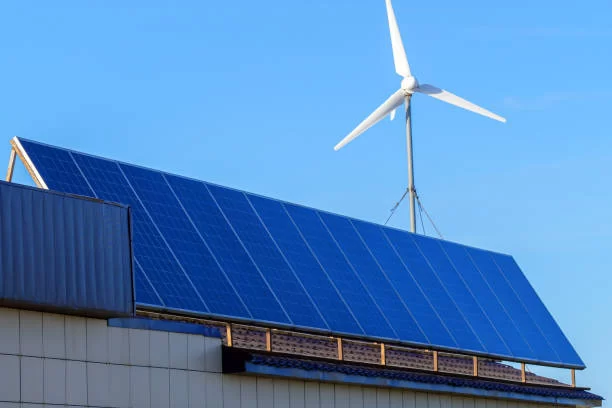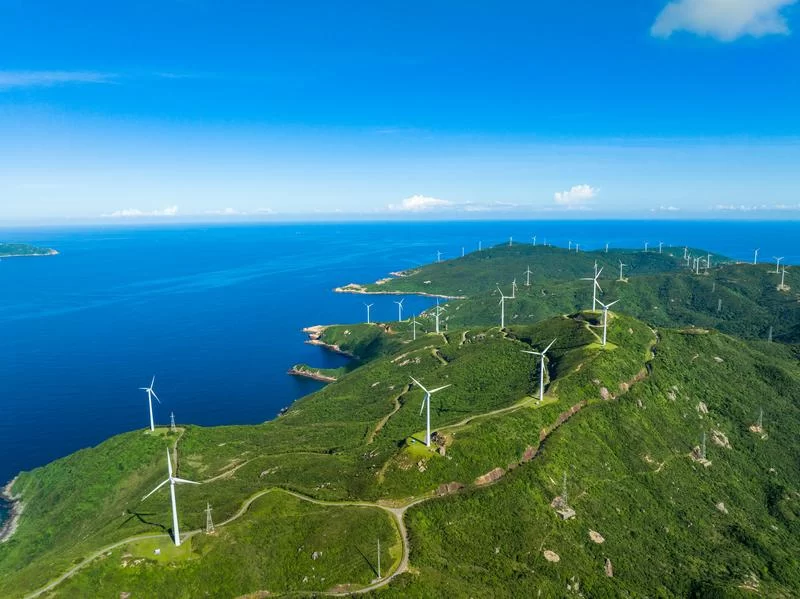The Role of Hybrid Energy Systems in Sustainable Development
In the pursuit of sustainable development, the integration of hybrid energy systems represents a crucial step towards reducing carbon footprints, enhancing energy security, and promoting environmental stewardship. This article explores the transformative impact of hybrid energy systems on our energy landscape and their role in shaping a sustainable future.

Hybrid energy systems combine two or more renewable energy sources with complementary characteristics to optimize energy production, storage, and distribution. Common combinations include solar and wind, wind and hydro, or solar and biomass, among others. By leveraging the strengths of multiple sources, hybrid systems mitigate the intermittency issues inherent in individual renewable sources and provide more reliable energy supply.
Integration of Renewable Sources: Hybrid systems integrate renewable sources such as solar, wind, hydro, biomass, and geothermal energy. Each source contributes uniquely, balancing out seasonal variations and weather-dependent fluctuations to maintain stable energy output.
Energy Storage and Management: Efficient energy storage is critical to the success of hybrid systems. Battery storage, pumped hydro storage, and other innovative storage solutions enable these systems to store excess energy during peak production periods and release it during high demand, optimizing energy use and grid stability.
Grid Integration and Flexibility: Hybrid systems are designed to seamlessly integrate with existing power grids, providing flexibility to meet varying energy demands. They contribute to grid stability by reducing reliance on fossil fuel-based backup generators and enhancing resilience against power disruptions.
The adoption of hybrid energy systems offers a wide range of benefits across environmental, economic, and social dimensions:Reduced Carbon Emissions: By replacing fossil fuel-based energy generation with renewable sources, hybrid systems significantly reduce greenhouse gas emissions, mitigating climate change impacts.
Energy Security and Independence: Diversifying energy sources through hybrid systems enhances energy security, reducing dependence on imported fossil fuels and volatile global energy markets.
Cost Efficiency: Over time, hybrid systems can lower energy costs through reduced fuel expenses, maintenance savings, and potential revenue from excess energy sales back to the grid.
Job Creation and Economic Growth: The deployment of hybrid energy projects stimulates local economies through job creation in manufacturing, installation, and maintenance sectors, supporting sustainable economic development.
Challenges and Solutions
Despite their numerous advantages, hybrid energy systems face challenges that require innovative solutions:
- Technological Integration: Integrating multiple renewable sources and storage technologies requires advanced engineering and grid management solutions to ensure compatibility and efficiency.
Cost Considerations: Initial investment costs for hybrid systems can be higher than conventional energy infrastructure. However, advancements in technology and economies of scale are gradually reducing these barriers.
Policy and Regulatory Support: Clear and supportive policies, including incentives for renewable energy development and streamlined permitting processes, are crucial to fostering a conducive environment for hybrid energy projects.

Case Studies and Success Stories
Several regions around the world have successfully implemented hybrid energy systems, demonstrating their effectiveness in achieving sustainable development goals:
Island Communities: Remote islands, such as those in the Pacific and Caribbean, rely on hybrid systems to reduce diesel dependency and achieve energy independence.
Urban Microgrids: Hybrid systems in urban settings integrate rooftop solar panels with battery storage, providing localized energy solutions and enhancing grid resilience during peak demand periods.
Rural Electrification: Hybrid systems play a pivotal role in electrifying rural communities in developing countries, where extending traditional grid infrastructure is economically unfeasible.
Future Directions and Innovations
Looking ahead, the future of hybrid energy systems is promising with ongoing advancements in technology and policy support:
Advancements in Energy Storage: Continued improvements in battery technology and the development of next-generation storage solutions will enhance the reliability and efficiency of hybrid systems.
Smart Grid Integration: Integration with smart grid technologies will optimize energy management, improve forecasting capabilities, and enable demand-response strategies to balance supply and demand dynamically.
Community Engagement and Education: Promoting public awareness and engagement in renewable energy initiatives will foster a culture of sustainability and accelerate the adoption of hybrid energy solutions globally.
Conclusion
In conclusion, hybrid energy systems represent a paradigm shift towards a sustainable energy future. By harnessing the complementary strengths of renewable energy sources and innovative storage technologies, these systems not only mitigate environmental impacts but also promote economic growth and energy independence. As global energy demands continue to rise, investing in hybrid energy solutions is imperative to meet these challenges while safeguarding our planet for future generations.

